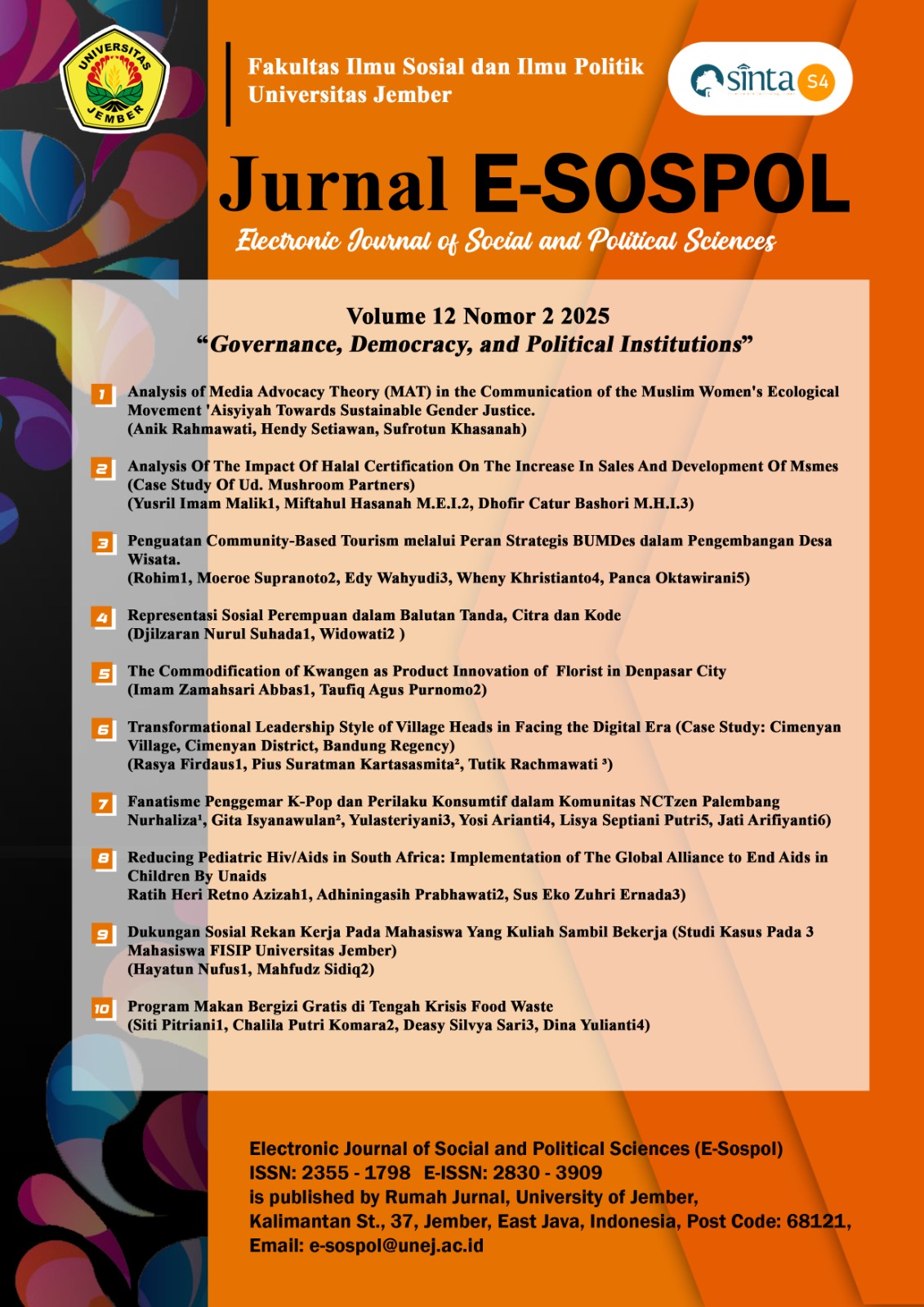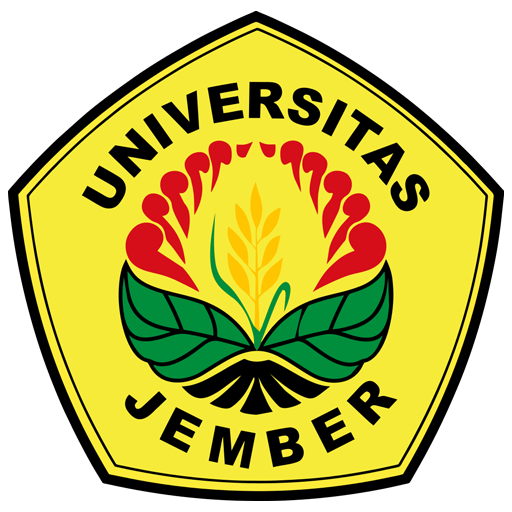Analysis of Media Advocacy Theory (MAT) in the Communication of the Muslim Women's Ecological Movement 'Aisyiyah Towards Sustainable Gender Justice
DOI:
https://doi.org/10.19184/e-sospol.v12i2.53768Abstract
The purpose of this paper will discuss the communication of the 'Aisyiyah environmental movement in creating gender justice through Media Advocacy Theory (MAT). The problem of environmental damage is still a serious problem that can threaten human life. This problem will have a worse impact on human life if there are no concrete rescue efforts. Interestingly, the impact of environmental damage often targets women's groups. This group is most vulnerable to environmental damage. However, in the midst of the risk and vulnerability of women due to environmental damage, the 'Aisyiyah group is able to show another face as a strong woman. The existence of the 'Aisyiyah environmental movement is constructed to be able to offer and promote how women have the ability to be involved in environmental rescue efforts. This movement is of course a form of resistance from Muslim women's groups who have so far been considered marginal. This study uses a qualitative type with a phenomenological approach. This method is used as a study of awareness and mindset towards the 'Aisyiyah environmental movement. While the data collection technique uses observation, in-depth interviews, and documentation. The stages of this phenomenological research include determining the subject and subject of research, the approach process, informant determination strategies, data collection techniques, data recording procedures, field issues, and data storage as well as the final reporting stage. The results of the study show that the use of media plays an important role in the communication of the 'Aisyiyah environmental movement. In addition to being able to support movement activities and mass information, the media is also able to capture every environmental advocacy carried out by 'Aisyiyah. Interestingly, in the media and advocacy of the movement, it is also strengthened by the use of environmental issue framing that is able to mobilize the public that women are able to be tough and empowered.
Downloads
Downloads
Published
Issue
Section
License
Penulis yang mengusulkan naskahnya untuk dapat diproses penerbitannya pada e-SOSPOL dianggap telah menyetujui beberapa hal sebagai berikut:
1. Penulis tidak dapat menarik naskah yang telah usulkan untuk diproses hingga mendapat jawaban dari Ketua Dewan Penyunting atas status naskah artikel ilmiahnya (diterima atau ditolak untuk diterbitkan).
2. Penerbit tidak bertanggung jawab terhadap kasus plagiasi atas artikel yang terbit pada e-SOSPOL
3. Penerbit tidak bertanggung jawab atas data dan isi dari artikel yang diterbitkan pada e-SOSPOL, dan sepenuhnya merupakan tanggung jawab penulis.







